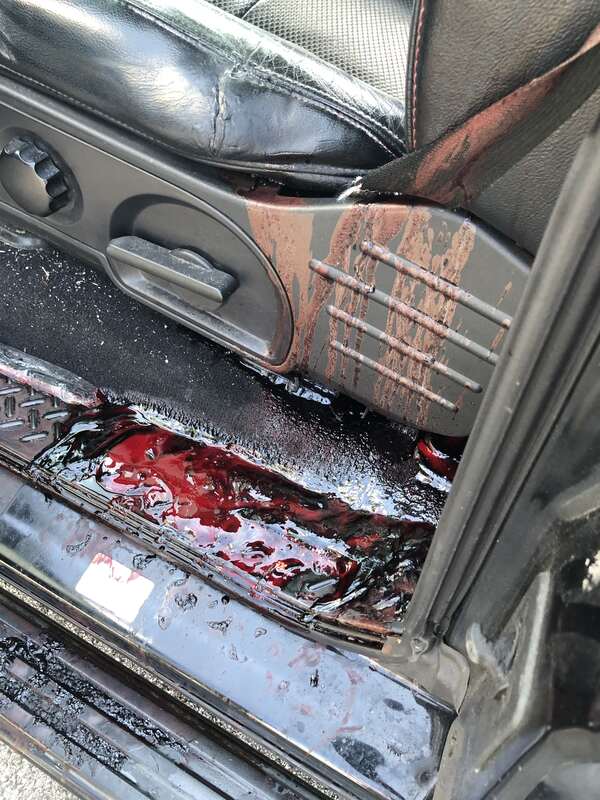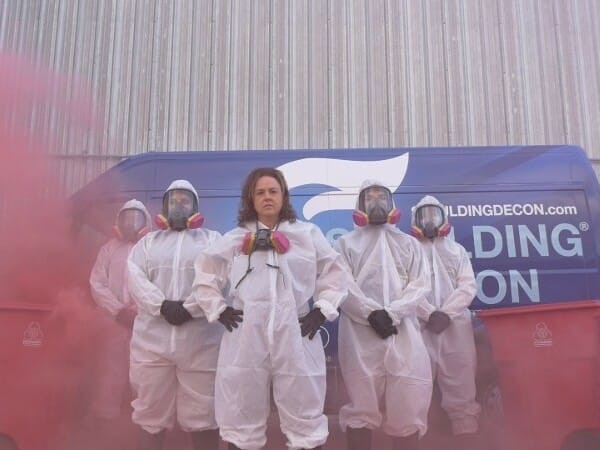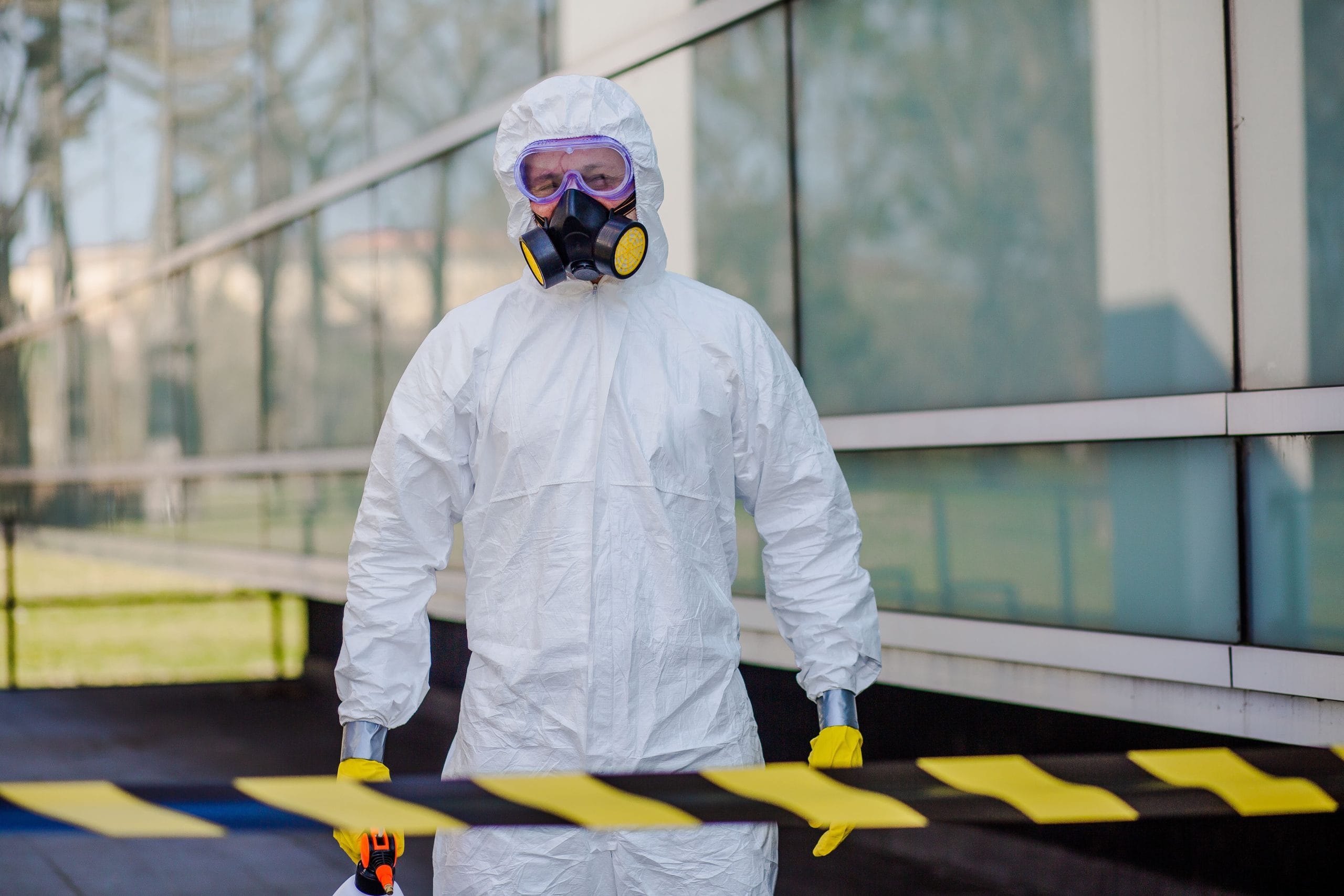When most of us think about violent crimes, we picture a gunshot, a spatter of blood, a body falling, and the flashing lights of police cars. If you’ve watched a lot of CSI, your mind may go to evidence bags, DNA swabs, fingerprint dust, and body bags. But what happens to a crime scene after the flashing lights drive away and the police begin their search for a suspect?
Crime scene cleaning is a process that, while often overlooked, is critical to recovery after a crime. Read on to learn more about what this process is and everything that goes into it.
Facing the aftermath of a traumatic event? Contact Spaulding Decon at (866) 726-2316 for immediate, professional crime scene cleanup services available 24/7.
What Is Crime Scene Cleanup?
Crime scene cleanup is one of those things most of us never think about when it comes to violent crimes. When a crime, especially a violent crime, occurs, blood and other bodily matter can get spread around an area. After the police have completed their crime scene investigation and taken all the samples they need, the responsibility for cleaning up the rest of the scene can fall on the victims.
Crime scene cleaners are professionals who are trained to deal with the special challenges of cleaning up biological materials. They take care of any blood or bodily materials left behind and, in some cases, restore damaged materials such as carpet or other flooring. They may also work on odor removal, especially in scenes where a body has been left unattended for a long time.

Why Professional Services Are Important
Depending on the size and nature of the crime, some families may be tempted to clean up the leftover scene themselves. But those of us who have spent a lot of time listening to true crime podcasts or watching Investigation Discovery know that, without professional training, it’s nearly impossible to remove all evidence from a crime scene. And in many cases, a crime scene may be traumatizing for a family to try to clean up on their own.
Crime scene cleaning professionals know how to find every spot and speck of biological material at a crime scene. They’re trained in special techniques on how to remove this material. And because they aren’t as intimately involved in the crime that occurred, they can save the family a lot of pain and trauma with their services.
Don’t handle biohazardous materials on your own. Call Spaulding Decon now at (866) 726-2316 for expert crime scene cleaning and restoration.
What Happens When a Body Decomposes
Before we get into the details of what goes into a crime scene cleanup, let’s talk about what happens when a body decomposes. Immediately after death, carbon dioxide left in the body begins to create an acidic environment that causes a body to start digesting itself. Rigor mortis causes the muscles to stiffen, the skin may take on a sort of sheen, and the top layer of skin begins to loosen.
As the body breaks down further, it begins to fill with gases and bloat; a body may double in size due to bloating, and it will begin to smell at this stage. Insects will begin to show up, and over time, the muscles, organs, and skin will start to liquify as soft tissues decompose. It will take about a month for a body to reach the liquefaction stage, and once all the soft tissues are broken down, only the skeleton will remain.
There Are Layers of Contamination
When most of us picture a crime scene, we tend to think of a white chalk outline, a body, and perhaps a spray of blood on the wall. But when it comes to crime scene cleanup, far more of a space is impacted than you might think. There are multiple layers of contamination that can extend far beyond the body itself.
For instance, let’s say a body was left to decompose until it reached the liquefaction stage. The flooring beneath the body will have absorbed liquids from the decomposing body and may need to be replaced. The walls, furniture, and other materials in the room may also have absorbed the odor produced by the decaying body and may need to be cleaned.
You Need Specialized Cleaners
It should come as no surprise that you can’t approach a crime scene with a bottle of Clorox spray and nothing more. Crime scene cleaning professionals use a variety of specialized cleaners designed to tackle biological matter.
Crime scene cleaners have a special substance that helps them detect and disinfect blood at a crime scene. It’s similar to hydrogen peroxide, and when it comes into contact with blood, it foams up and turns a bright white color. In certain cases, crime scene cleaners may also have to deal with brain matter, which hardens to a cement-like consistency over time. They have solvents that can help to soften this tissue so it can be removed with a standard scraper.
They Use Special PPE
As you might expect, crime scene cleaners have specialized personal protective equipment they use at crime scenes. For one thing, depending on how long a body has been left to decompose, the odors alone can be overpowering without protection. But decomposing biological materials can also be dangerous, so crime scene cleaners need to protect themselves.
Crime scene cleaning professionals wear thickly lined bodysuits with long sleeves and hoods. They also wear booties over their shoes and heavy-duty respirators with HEPA filters and other advanced odor control methods. Finally, they wear layers of gloves and often eye protection to shield them from any dangerous or unpleasant particles.
Ensure your safety and peace of mind—reach out to Spaulding Decon at (866) 726-2316 for prompt and discreet crime scene cleanup services.
Spaulding Decon Crime Scene Cleaning Professionals

Crime scene cleaning is an often under-appreciated job, but it is a crucial one. The professionals at Spaulding Decon have the right tools, substances, and training to remove any sign that a crime ever occurred in a space. They have specialized PPE, next-level cleaners, and expertise in finding and removing blood, odor, and more from a scene.
If you’d like to learn more about crime scene cleaning and how to become a crime scene cleaner, check out the rest of our site at Spaulding Decon. We clean up life’s accidents, from crime scenes to meth labs and more. Find a location near you and start getting things back to the way they were as quickly as possible.






